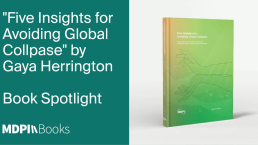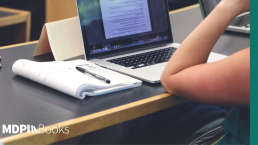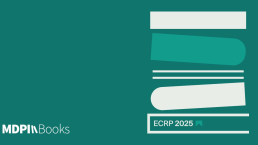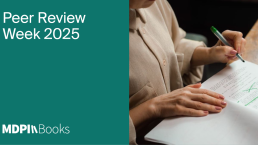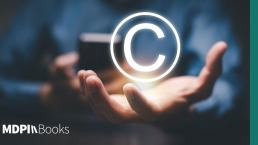
How Open Access Book Publishing Can Fight Misinformation
In a world very much dependent on the production of media, misinformation poses a big threat to how we encounter and absorb knowledge. This is proving to be especially problematic for academic publishing, an industry that prides itself on transparency and research integrity.
In this article, we explore misinformation in academic publishing and how certain open access books are equipping readers with the knowledge and context to better understand misinformation.
What is misinformation?
Misinformation is defined as misleading or factually incorrect information, usually spread without harmful intent. This definition is in contrast to the one for disinformation, which is understood as false information but spread with harmful intent.
Yet even if misinformation is spread without harmful intent, that doesn’t lessen the negative impact it has on our collective knowledge and critical thinking. Once information takes root and spreads within online communities, it is difficult to undo its effects.
To further complicate matters, misinformation can be notoriously tricky to identify, which means dispelling it and moving the conversation forward is not an easy process. In the past year, longstanding sites such as Facebook have had to update their policies and release details regarding these policies to inform readers of what they’re doing to combat misinformation and how to spot it.
Yet why is misinformation so effective?
Why we believe misinformation
Misinformation is the key issue explored in our Open Access Edited Book, “Fighting Fake Facts” (edited by Peter Seitz, Mark Eisenegger, and Manfred Max Bergman). In its introduction, the psychology behind misinformation is explained.
One of the main reasons why humans fall for misinformation is that we all operate with a truth bias. This means that we generally do not anticipate lies and deceit–as a rule, we’re naturally trusting creatures. Yet this leaves us vulnerable when faced with information we’ve not encountered before, especially from supposedly reputable sources.
Another reason for our misguided belief is what is known as the repetition–truth effect. What this refers to is the impact that prior exposure to news has on our ability to critically perceive it during subsequent encounters. Repeated exposure to a piece of information increases the belief that the information is true. This is because coming across a piece of information again makes it much easier to process. In turn, this makes it more familiar to us.
Ultimately, it’s this familiarity that we use to determine whether the information we are seeing is true. Even in the presence of valid contradictory information, we fall back on familiarity because it’s reassuring.
The problem of misinformation in academic publishing
Misinformation is extremely prevalent in almost all media spheres. It’s no wonder that even traditionally trustworthy sources of information, such as large media platforms, are facing increasing skepticism regarding their integrity in the era of fake news.
Another traditionally trustworthy source of information, academic publishing, has unfortunately come under similar skepticism recently.
Despite being renowned for maintaining integrity in the pursuit of pioneering research, academic publishing has been subject to instances of misinformation circulating amongst its readers and communities.
This risk of spreading misinformation is particularly prevalent amongst what we might term ‘predatory publishers’. These are publishers who forego best editorial and publication practices and let false or misleading information enter the research ecosystem. One of the suggestions is for greater transparency in academic publishing. This can be achieved by releasing review reports, which would create fewer chances for predatory publishers to take advantage of information that is not being disclosed to readers.
Once misinformation has entered the research ecosystem, it’s notoriously hard to undo its effects. Even if the original research is retracted.
So, what can we do as readers to safeguard ourselves against misinformation?
How open access books can help
Open access books can be extremely useful in the fight against misinformation for many reasons. They provide us with an alternative to a publishing model susceptible to misinformation.
In contrast to articles, open access books are a chance to pause and reflect on issues. Open access books also provide us with extensive explorations of a single subject in the form of monographs. The average length of an MDPI Books monograph is around 230 pages, compared to 20–30 pages for a typical journal article. This emphasis on in-depth discussions gives authors more space for showcasing possible alternative hypotheses that might explain blank spots in the original research.
Importantly, open access books are easily accessible. This means that credible, peer-reviewed research can be used to efficiently fact-check against possible instances of misinformation circulating online.
Additionally, open access books are hosted in online libraries such as our own. This means that relevant titles can be sourced using keywords. If there’s a specific topic that’s susceptible to misinformation, search for authoritative sources on such topics. This can be a crucial way of easily finding counterarguments and aggregating various sources to come to a rational conclusion.
The importance of Social Sciences, Arts and Humanities in helping combat misinformation should not be overlooked. SSAH can help us observe the signs of deception in media, teaching us to pause and think critically when faced with information.
Utilising open access effectively
As we’ve seen, misinformation is a huge problem in today’s media climate. Even traditionally trusted publishers are struggling to keep misinformation at bay.
Yet open access book publishing is the perfect model to push back against the tide of misinformation. In a media climate susceptible to instances of misinformation entering its ecosystem, it’s crucial that there’s research out there that remains accessible. And that provides us with a context within which to pause and reflect on certain subjects.
Misinformation will continue to be an issue for all of us going forward. Want further help in identifying and refuting its many instances? We have even more freely available sources that tackle the issue of misinformation.

